X-Men and the Mutant Metaphor
X-Men and the Mutant Metaphor
Race and Gender in the Comic Books
Joseph J. Darowski
Rowman & Littlefield
Lanham Boulder New York Toronto Plymouth, UK
Published by Rowman & Littlefield
4501 Forbes Boulevard, Suite 200, Lanham, Maryland 20706
www.rowman.com
10 Thornbury Road, Plymouth PL6 7PP, United Kingdom
Copyright 2014 by Rowman & Littlefield
All rights reserved. No part of this book may be reproduced in any form or by any electronic or mechanical means, including information storage and retrieval systems, without written permission from the publisher, except by a reviewer who may quote passages in a review.
British Library Cataloguing in Publication Information Available
Library of Congress Cataloging-in-Publication Data
Darowski, Joseph J., author.
X-Men and the Mutant Metaphor : Race and Gender in the Comic Books / Joseph J. Darowski.
pages cm
Includes bibliographical references and index.
ISBN 978-1-4422-3207-5 (cloth : alk. paper) ISBN 978-1-4422-3208-2 (ebook)
1. X-men (Comic strip). 2. X-Men (Fictitious characters). 3. Race in literature. 4. Gender identity in literature. 5. Comic books, strips, etc.United States. I. Title.
PN6728.X2D37 2014
741.5'973dc23 2013044977
 The paper used in this publication meets the minimum requirements of American National Standard for Information SciencesPermanence of Paper for Printed Library Materials, ANSI/NISO Z39.48-1992.
The paper used in this publication meets the minimum requirements of American National Standard for Information SciencesPermanence of Paper for Printed Library Materials, ANSI/NISO Z39.48-1992.
Printed in the United States of America
Dedicated to Gary Hoppenstand
Thanks for the great guidance and intriguing discussions.
Contents
Acknowledgments
First, Id like to thank the dissertation committee who guided the earliest stages of this project. Drs. Gary Hoppenstand, Sheila Contreras, James Seaton, and Maria Bruno all helped improve my work and focus my thoughts. My interest in researching superhero comic books was first helped along by my masters thesis committee at Brigham Young University, so a similar thank-you is in order for Drs. Steve Walker, Frank Fox, and Phillip Snyder. Several comic book writers were kind enough to respond to e-mails or interview requests while I was working on this research. Thank you to Chris Claremont, Roy Thomas, Mike Carey, Kurt Busiek, Fabien Nicieza, and Scott Lobdell. Also Ron Richards of iFanboy.com and Brian Cronin from comicbookresources .com were kind enough to respond to inquiries. The final chapter of this book would not have been possible without the help of my wife, Emily, and the statistics training she received while obtaining her PhD in psychology. Others who provided help with reading and feedback include Ben Phillips, Andrew Darowski, John Darowski, and Kay Darowski. Id also like to thank Jack Kirby, Stan Lee, and all the subsequent creators who worked on the primary material examined in this study.
Introduction
I believe it is safe to say that every grad student at some point gets asked a question along the lines of Why are you studying that? or What are you going to do with that? If youre researching human memory, Greek philosophy, international politics, or Irish literature, odds are youre going to spend a fair amount of time explaining what it is you study and why its worthwhile. Not surprisingly, this is also true if youre researching comic book superheroes.
Since entering graduate school and focusing my research on X-Men comic books, first at Brigham Young University and then at Michigan State University, Ive been asked these questions with some frequency. I believe people who are asking some form of Why are you studying that? are actually asking one of four questions. There is the broadest version of the question, inquiring about the validity of working in a field that is not a hard science and does not appear to have a direct exit from grad school into the private sector. They mean Why study the humanities? Some individuals who see the value of studying the canon of literature or classic art might narrow their question to Why study popular culture? And then those who accept the importance of understanding our entertainment culture may ask Why study comic books? Finally, there are those who are asking the most pointed question: Why study the X-Men? Each of these questions is worth answering.
It is undeniable that there is immense value in studying hard sciences. Technological innovations, medical advances, and other obvious benefits make hard sciences very important to our society. However, to insist that because hard sciences are beneficial the humanities are somehow frivolous is a false dichotomy. There is great value in understanding culture. There is a distinct advantage in mastering critical thinking. There is true societal importance in thinking deeply about complex issues of race, gender, sexuality, culture, or religion. Those are some of the benefits that can come from studying the humanities.
Even those who accept the value of studying the great canon of literature or the art that has been produced in cultures all over the world may question the validity of studying popular culture. But how many people watch television compared with how many read Shakespeare? How many people listen to pop songs on the radio compared with those settling down to read Robert Frost? Perhaps the ability to properly analyze the content of popular culture and the effects it has on consumers is something we need more people to master. This is not in any way suggesting that Shakespeare shouldnt be studied (another false dichotomy); I enjoy Shakespeare immensely. Popular culture is an important part of American society. Entertainment is one of Americas largest exports; it is part of a shared communal culture that many lament is disappearing. Thinking critically about our entertainment culture should be encouraged, not maligned.
But surely, some may say, we can study Alfred Hitchock and Fritz Lang without having to resort to studying comic books. Film can be art; comic books are part of the disposable detritus of youth culture. Just as with any medium of storytelling, there can be wonderful stories, thought-provoking narratives, and insightful commentary found in comic books. There can also be found completely forgettable, poorly made stories with little internal logic. It is silly to dismiss an entire mode of storytelling because of a social prejudice.
Obviously more reputable graphic novels such as Art Spiegelmans Maus or Alison Bechdels Fun Home or Marjane Satrapis Persepolis are worth reading, but superhero comics? With mutants? The superhero genre has been greatly popularized in American culture, influencing every aspect of popular culture from video games to cartoons to blockbusters. But they were popularized in comic books. The serial storytelling in comic books allows for a fascinating opportunity to study a single narrative that spans decades. Regularly produced comic books mean a constantly evolving product that reflects changes in the society that produces and consumes the stories for entertainment. The need for a superhero implies something is broken in the system. With Superman its that there are threats too large for the system to handle. With Batman its that there is too much crime for the system to handle. With the X-Men, its that there is prejudice and hatred in the world because people are different. How those themes are explored by characters in bright costumes with crazy powers is worth examining. And how those themes are presented in a superhero narrative can lead to insights about our very culture.
Our entertainment, from comic books to television to movies, simultaneously reflects and influences our values, our prejudices, our sense of identity. I think understanding that process is important. I think it does matter. Thats why I study the X-Men.
Next page
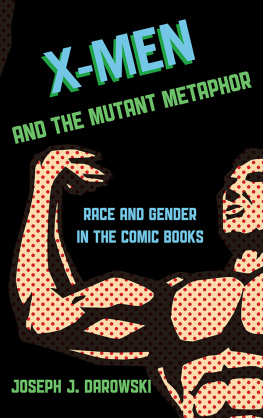
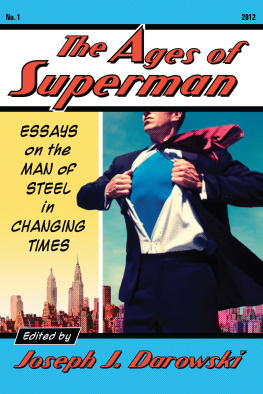
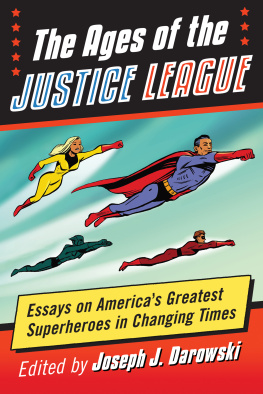

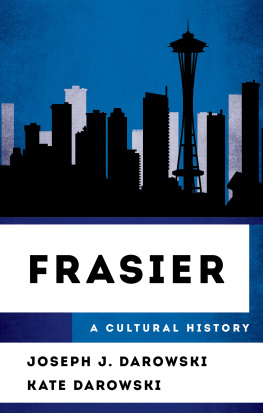
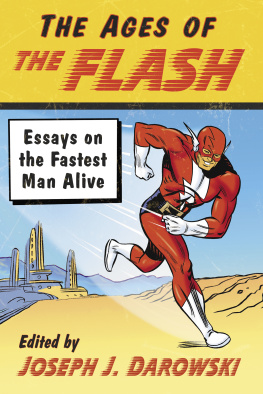
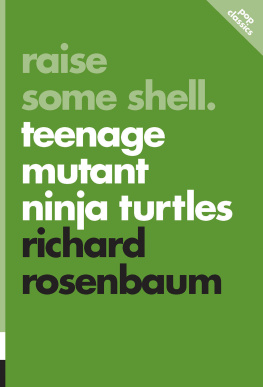
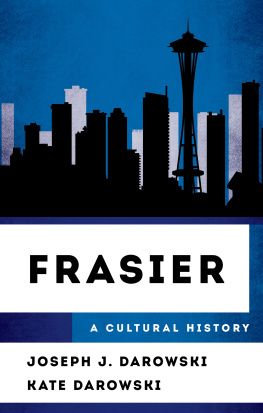
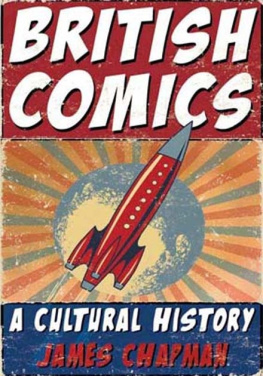
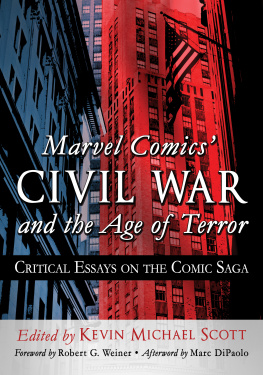
 The paper used in this publication meets the minimum requirements of American National Standard for Information SciencesPermanence of Paper for Printed Library Materials, ANSI/NISO Z39.48-1992.
The paper used in this publication meets the minimum requirements of American National Standard for Information SciencesPermanence of Paper for Printed Library Materials, ANSI/NISO Z39.48-1992.